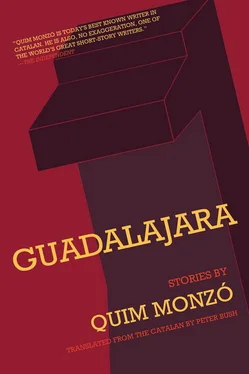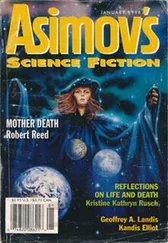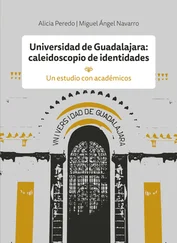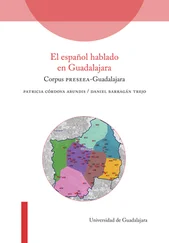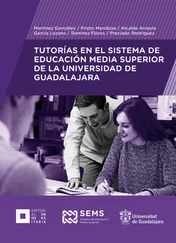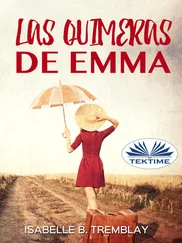Quim Monzó - Guadalajara
Здесь есть возможность читать онлайн «Quim Monzó - Guadalajara» весь текст электронной книги совершенно бесплатно (целиком полную версию без сокращений). В некоторых случаях можно слушать аудио, скачать через торрент в формате fb2 и присутствует краткое содержание. Год выпуска: 2011, Издательство: Open Letter, Жанр: Современная проза, на английском языке. Описание произведения, (предисловие) а так же отзывы посетителей доступны на портале библиотеки ЛибКат.
- Название:Guadalajara
- Автор:
- Издательство:Open Letter
- Жанр:
- Год:2011
- ISBN:нет данных
- Рейтинг книги:3 / 5. Голосов: 1
-
Избранное:Добавить в избранное
- Отзывы:
-
Ваша оценка:
- 60
- 1
- 2
- 3
- 4
- 5
Guadalajara: краткое содержание, описание и аннотация
Предлагаем к чтению аннотацию, описание, краткое содержание или предисловие (зависит от того, что написал сам автор книги «Guadalajara»). Если вы не нашли необходимую информацию о книге — напишите в комментариях, мы постараемся отыскать её.
Guadalajara — читать онлайн бесплатно полную книгу (весь текст) целиком
Ниже представлен текст книги, разбитый по страницам. Система сохранения места последней прочитанной страницы, позволяет с удобством читать онлайн бесплатно книгу «Guadalajara», без необходимости каждый раз заново искать на чём Вы остановились. Поставьте закладку, и сможете в любой момент перейти на страницу, на которой закончили чтение.
Интервал:
Закладка:
And why the ring finger on the left hand and not the little finger on the right, or an index finger? Was it some hygienic measure, the reason for which had been forgotten with the passage of time? He just couldn’t understand. It was evident it was an ancestral custom, but how had it originated? Had they practiced it for centuries? Or simply decades? On his ninth birthday, his father found him crying in bed.
“I don’t want my finger chopped off.”
“What an odd thing to say!”
“I want to be normal, like the other kids at school.”
“Being normal has nothing to do with having one finger more or one less.”
His father wiped away his tears and told him that normal is a cultural value and consequently completely relative; some people like crew-cuts, others like long hair, some prefer a beard and mustache, some only a mustache and others only a beard, and some even shave the whole lot off; there are nations where both men and women depilate themselves and others where only the women do. We cut our toenails, and that’s precisely what makes us different from animals and primitive peoples who prefer to keep them very long. Armand disagreed with these comparisons. Hair and nails grow again, fingers don’t. The sun was shining through the window; father and son looked at the warm lines the beams were tracing on the ground.
“You don’t have to make your mind up immediately.”
“I’ve already made it up, and I don’t want to do it.”
“Why not?”
“You can’t play the harp if you’re a finger short.”
•
He surprised even himself. He’d said that quite spontaneously. Nevertheless, although he’d not realized that or thought about it before, it was out in the open, his father was in the know, and it could very well be true that he wanted to be a harpist, so he kept to his story. Months ago he’d seen a television report about Nicanor Zabaleta playing the harp, and it was quite obvious he needed all his fingers. A harpist needed every single one. His father was looking at him solemnly. He’d never seen him so solemn.
“If you like music, there are lots of different instruments. It doesn’t have to be a harp.”
“But I like the harp.”
“You’re just obsessed with the harp at your uncle’s. But the world of musical instruments doesn’t stop at the harp. Just think how many others there are: the kettledrum, the bass drum, the tambourine, the bongo, the triangle . . .” Armand stared at him, betraying no sign of excitement at these possibilities. “Perhaps you think the maracas are small potatoes, but what about the drums? Drums give lots of scope: the bass drum, the ordinary drum, the tom-tom, the cymbals and the snare. And never forget the xylophone!”
Armand spent the next few months in a very jumpy state. The belief had always circulated in the family (always mentioned jokingly) that they’d cut a kid’s finger off one day, but it would grow back with time. Some said it would be a sign that something was about to happen, but they never got around to saying exactly what. Others said that, in effect, the finger would grow back but that this would mean nothing in particular. That story sowed fresh doubts in Armand’s mind: What if he refused to let them chop his finger off and he was the chosen one whose finger would grow back after it had been removed? What an absurd situation! His refusal would prevent that miracle from ever happening.
He was obsessed by fingers. He noticed how some people wore a ring on the ring finger of their left hand. In his family, nobody had a ring finger, so they always wore it on the little finger, and when it came to the marriage ceremony, the priest always looked on impassively when the time came for the bride and bridegroom to put their rings on. Armand once saw a complete stranger in the street who was missing the ring finger of his left hand, and he spent days investigating whether he was a distant relative, so distant he didn’t even know him. Perhaps other families shared the same tradition. Or similar ones? Perhaps they amputated other fingers, or other parts of the body . . . but why? What sense did it make? And what did they do with the fingers they’d chopped off? Did they bury them? Armand imagined them buried vertically, like asparagus shoots, in small graveyards for fingers. Perhaps they cremated them.
He gradually started to see his parents and the rest of his relatives through different eyes. What kind of macabre tradition were they cherishing; how could they go along with it so pitilessly? As he didn’t trust them, he slept with his left hand under the pillow where he rested his head. He’d calculated that it would be quite impossible for them to lift up his head, remove the pillow, take his hand out, and slice his finger off without waking him up. He would sometimes dream that, despite all these precautions, his parents (their faces glowing sanctimoniously) managed to lift up his head and pillow, extract his hand, and chop off his finger with a single deft slice of the carving knife.
•
He had a panic attack when he discovered there would be a family reunion the following Sunday. For the first time he was a candidate to lose a finger. He and Guitard were the two most likely cousins. Both were now nine years old. He had been nine for three months, Guitard for seven. If seniority was an issue, it was Guitard’s turn. But amputations weren’t always carried out according to the principle of seniority, and that meant it could very well be his turn this time.
Sunday came, and they didn’t chop off his finger, or Guitard’s, but Teodard’s, a cousin who had a month to go before his ninth birthday; theoretically, they should have left him intact. Guitard was furious. He was up for the chop and not that cousin. They told him why they’d moved Teodard forward: his mother was pregnant, so they’d wanted to get the whole business over and done with—when the new baby arrived, there’d be no need to worry about the big brother’s finger. Armand was intrigued by Guitard’s attitude. He asked him if he wasn’t shocked by the idea of having his finger chopped off. Why should he be? On the contrary, he couldn’t see what the problem was and was shocked Armand even asked the question.
“They aren’t chopping your neck off. It’s only a finger, and not even the most important one at that.”
Guitard was crazy about becoming a grown up. Consequently, at the next family reunion, he ran into the room where the other kids were playing with toy trains, proudly waving his bandaged finger.
•
When the new cousin was born (they called him Abelard), there was a big fuss, whispered exchanges, and sudden silences whenever a youngster entered a bedroom. All the secrecy aroused Armand’s curiosity. But he found out only three days later that Abelard had been born with five fingers and a thumb on his left hand.
The whole family was alarmed. What would they do when Abelard made it to nine? If they chopped one finger off, he would have eight, not seven like everybody else. According to some, this might be seen as an offensive point of comparison, and two should be chopped off so he was like the rest of the family. Conversely, others thought it would be excessive to cut two off, if they cut off only one from everybody else. Only one should be amputated. This is what they’d always done, and there was no reason to start changing their tradition. The debates followed various tangents, got very involved, and always came back to square one. Finally, they reached the obvious conclusion: this was an exceptional case and, as such, merited an exceptional solution. Besides, there was no need to rush things. Abelard wouldn’t be nine for years, and that’s when the decision should be taken.
This reconciliatory conclusion fell flat, however, a few weeks later when cousin Gerarda was born: she also had an extra finger, and it was also on her left hand. So Abelard’s case was no longer exceptional, and the first serious doubts began to appear. It made no sense to delay a decision until Abelard and Gerarda were nine. A stenotypist uncle, a jazz fan, dared to ask what the point was in continuing with the whole tradition. It was the provocation they were all waiting for. The family reacted as one. An immemorial legacy couldn’t be questioned simply because of the random occurrence of two babies being born with five-fingered left hands. The dissident was told his question was out of order, and with a great sense of purpose, a date was fixed for their next reunion: a month later, at the beginning of December.
Читать дальшеИнтервал:
Закладка:
Похожие книги на «Guadalajara»
Представляем Вашему вниманию похожие книги на «Guadalajara» списком для выбора. Мы отобрали схожую по названию и смыслу литературу в надежде предоставить читателям больше вариантов отыскать новые, интересные, ещё непрочитанные произведения.
Обсуждение, отзывы о книге «Guadalajara» и просто собственные мнения читателей. Оставьте ваши комментарии, напишите, что Вы думаете о произведении, его смысле или главных героях. Укажите что конкретно понравилось, а что нет, и почему Вы так считаете.
